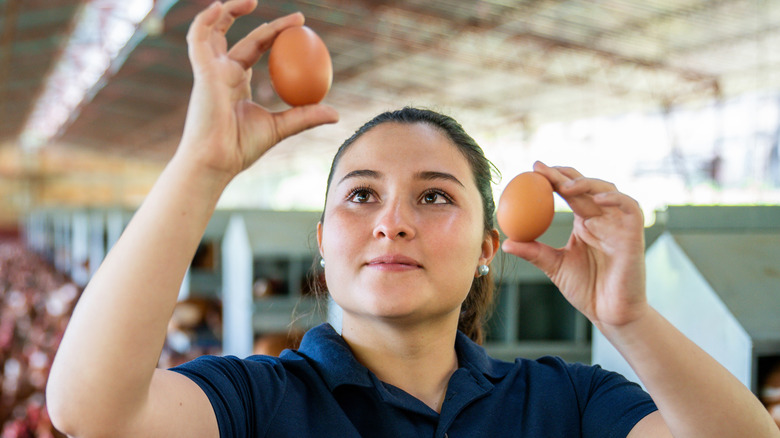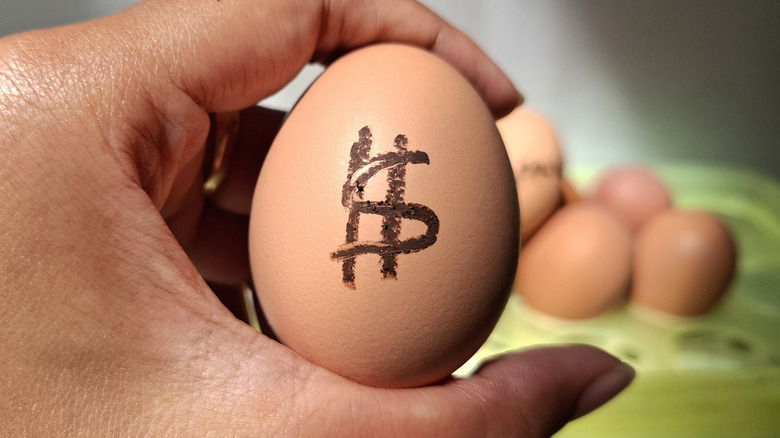How Much Extra Protein Is In A Jumbo Egg (And Are They Worth Buying For Your Health?)
If you're looking for a protein-rich food, you can always count on eggs to measure up. Packed with protein as well as other nutrients, eggs can fit into most people's diets. However, buying eggs at the grocery store can sometimes be a confusing experience.
Unless you're buying your eggs at a farmer's market stand, you probably have tons of choices. For instance, plenty of egg brands are out there. And they're all vying for a piece of your shopping budget. And brands aren't the only head-scratcher when you're purchasing eggs. Another is which size of egg you should put in your basket or cart.
Eggs are sold in sizes ranging from peewee to jumbo. But does that mean you should gravitate toward the package of jumbo ones if you're relying on your eggs as a main protein source? Maybe, but you need to consider several factors that might impact your decision.
More mass, same ratio
First, although a jumbo egg is physically larger than a peewee egg, its amount of protein isn't necessarily going to surprise you. According to Healthline, a small egg contains 4.79 grams of protein and weighs about 38 grams. In contrast, a jumbo egg contains 7.94 grams of protein and weighs 63 grams. This means that a small egg's protein-to-weight ratio is approximately 12.6%, and a jumbo egg's same ratio is also 12.6%.
In other words, you're getting more protein in a jumbo egg, but it's proportional to the amount of egg. And that makes perfect sense, because all eggs are just, well, eggs. Some are simply bigger or smaller, meaning your next three-egg omelet may take up greater or less surface in the pan. Therefore, if you're hoping to get more protein per gram from a jumbo egg, you won't.
On the other hand, if you're just interested in eating as much protein in a single egg as you can, you'll definitely score by selecting jumbo eggs.
Shelling out more
The second consideration involves inconsistent egg market prices. The wholesale price of eggs fluctuates weekly. You can track those fluctuations on the U.S. Department of Agriculture (USDA) website. For example, during the first week of September in 2023, USDA data shows that large eggs were priced at 153 cents per dozen. By the first week of September the next year, USDA data indicates that one dozen large eggs had nearly tripled to 440 cents.
In other words, though eggs are certainly considered a budget-friendly health food, other types of food may be consistently cheaper. Take tuna, for instance. An 85-gram serving of tuna offers 19.8 grams of protein (via USDA). Like eggs, the average can of tuna will range in cost but often falls under $5.00 per five-ounce can. Plus, tuna can provide more protein per gram than an egg.
What's the takeaway? If you want more protein out of your eggs (and you aren't concerned about eating more calories since Healthline explains that a large egg has 72 calories and a jumbo has 90 calories), and you don't mind paying more per dozen, opting for jumbo eggs could be fine. That said, if you're trying to consume more protein for your health (and save pennies), you may want to complement your eggs with inexpensive protein-packed foods.



